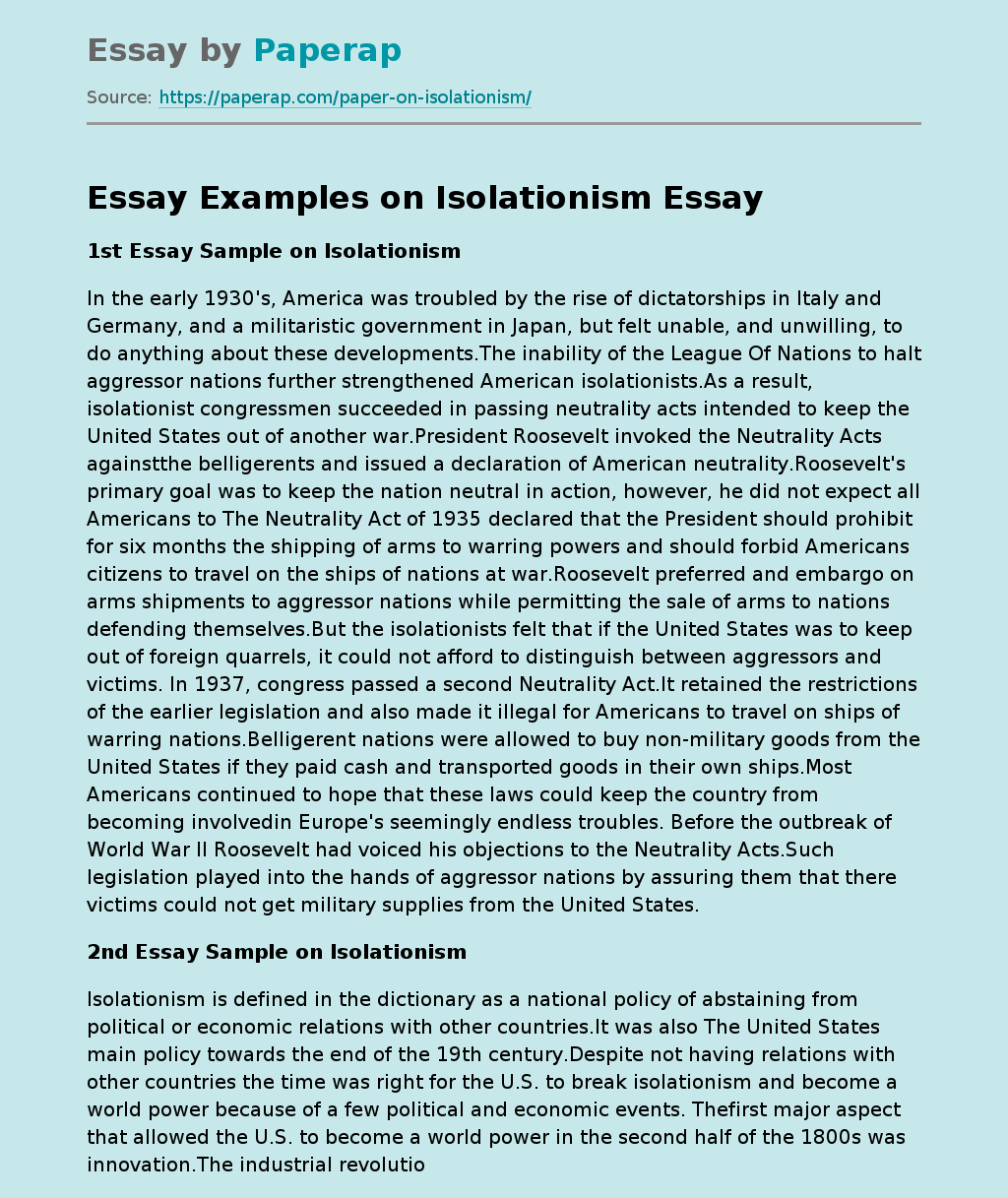Isolationism: Non-involvement in the Affairs of Other States
In the early 1930’s, America was troubled by the rise of dictatorships in Italy and Germany, and a militaristic government in Japan, but felt unable, and unwilling, to do anything about these developments.The inability of the League Of Nations to halt aggressor nations further strengthened American isolationists.As a result, isolationist congressmen succeeded in passing neutrality acts intended to keep the United States out of another war.
President Roosevelt invoked the Neutrality Acts againstthe belligerents and issued a declaration of American neutrality.
Roosevelt’s primary goal was to keep the nation neutral in action, however, he did not expect all Americans to The Neutrality Act of 1935 declared that the President should prohibit for six months the shipping of arms to warring powers and should forbid Americans citizens to travel on the ships of nations at war. Roosevelt preferred and embargo on arms shipments to aggressor nations while permitting the sale of arms to nations defending themselves.But the isolationists felt that if the United States was to keep out of foreign quarrels, it could not afford to distinguish between aggressors and victims.
In 1937, congress passed a second Neutrality Act.It retained the restrictions of the earlier legislation and also made it illegal for Americans to travel on ships of warring nations.Belligerent nations were allowed to buy non-military goods from the United States if they paid cash and transported goods in their own ships.
Most Americans continued to hope that these laws could keep the country from becoming involvedin Europe’s seemingly endless troubles.
Before the outbreak of World War II Roosevelt had voiced his objections to the Neutrality Acts.Such legislation played into the hands of aggressor nations by assuring them that there victims could not get military supplies from the United States.
Isolationism is defined in the dictionary as a national policy of abstaining from political or economic relations with other countries.It was also The United States main policy towards the end of the 19th century.Despite not having relations with other countries the time was right for the U.S. to break isolationism and become a world power because of a few political and economic events. Thefirst major aspect that allowed the U.S. to become a world power in the second half of the 1800s was innovation.
The industrial revolution is probably the best example of innovation.America had an abundance of raw materials, which made the U.S. a prime place for industry to flourish.Between the years 1878 and 1893 the American economy expanded in all its areas.Manufacturing increased 180 percent and farming increased 26 percent.
The expansion of the railroads was the biggest internal event of economic growth.The railroad industry helped to expand two other industries, the steel industry and the coal industry. On top of that the railroads were the biggest employer in the nation.Inventions were other important parts of innovation that allowed America to become a world power.Countries could now communicate faster with radio transmissions.The invention of the gasoline powered internal combustion engine was an important internal economic event that improved transportation in the U.S.Henry Ford made the automobile affordable to the public with mass production.
When cars were mass-produced they required materials like steel alloy, glass, rubber, and petroleum.If America didn’t have these materials they would be forced to trade with other countries.The industrial revolution also allowed production of military machines to go up which established us as a military powerhouse.The U.S. built a world-class navy, which was second only two Britain.
Isolationism: Non-involvement in the Affairs of Other States. (2019, Oct 10). Retrieved from https://paperap.com/paper-on-isolationism/

